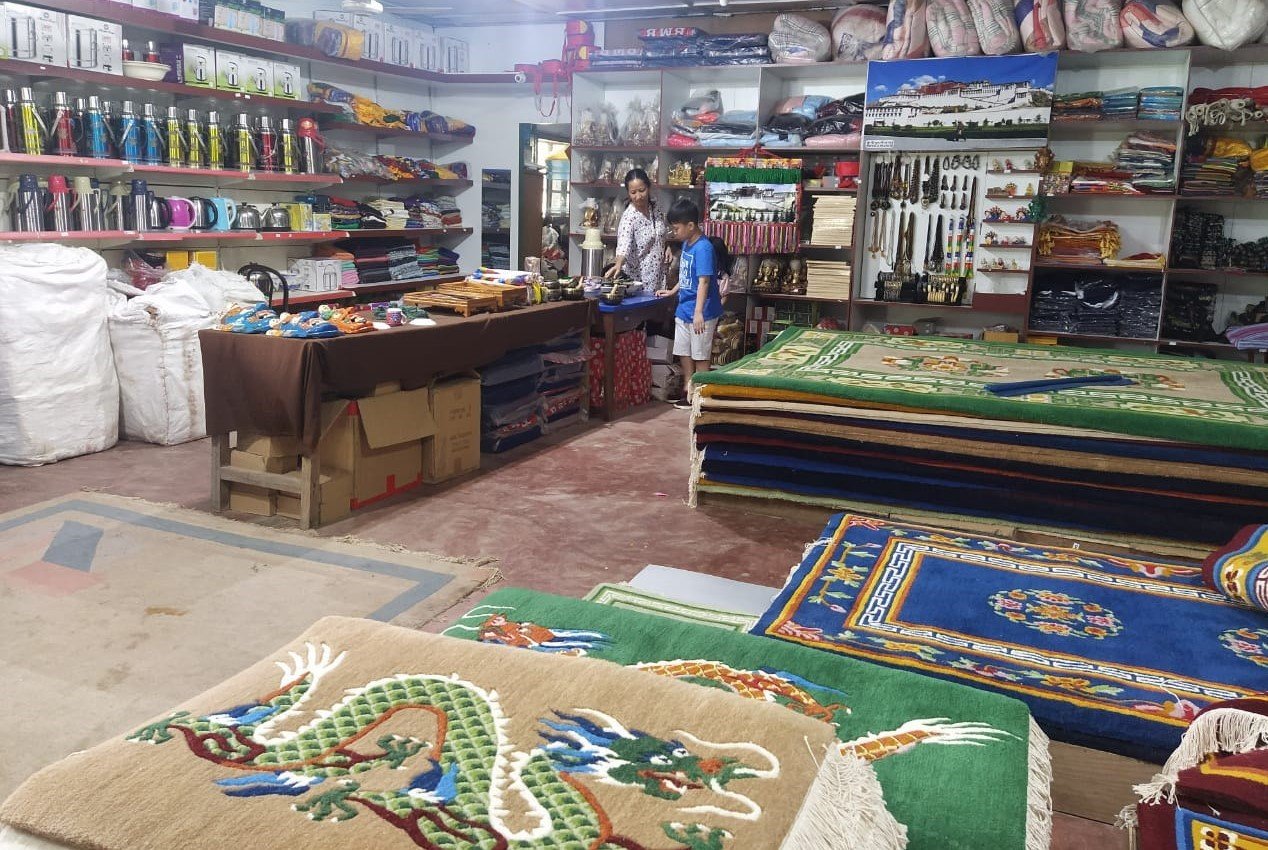Sonam Tsomo, a 50-year-old Tibetan weaver, has made a comeback in her life at the Tibetan settlement in Changlang district of Arunachal Pradesh, after she joined the carpet centre three decades ago.
Today, Tsomo and many of her peers have made the settlement their home, where they weave dreams in their looms.
The carpet centre at Choephelling Tibetan refugee camp is the backbone of the 500-odd Tibetan refugee families whose ancestors had fled Tibet along with the 14th Dalai Lama after the Chinese invasion in 1959.
For a first-time visitor to the carpet centre, the ambience of the unit with music wafting in the air, often in sync with the movement of the weavers’ hands and fingers, is a scene to witness.
Floor and wall carpets have been the unique selling point for the Choephelling Cooperative Society since it was established in 1975 by Tibetan refugees on the outskirts of Miao, the sub-divisional headquarters of Changlang district of Arunachal Pradesh.
The settlers here are known for producing excellent quality woollen carpets that are also exported. The centre boasts of having 30 skilled women weavers along with three embossers.
“I have been working in this craft centre since 1990 and it has been a wonderful experience for me. The centre has provided employment to more than a hundred Tibetans,” said Tsomo.
Another weaver, 47-year-old Sherab Sangmo, who joined the centre in 1999, felt that the establishment changed her life as she was able to support her family financially now.
“The skill of the craft has changed my life. Before joining the centre, I was an unemployed woman looking for a job to assist my parents economically. But today I am able to support them,” Sangmo added.
Carpet-weaving is one of the 14 activities of the Choephelling Cooperative Society run by around 2,000 shareholders from the settlement straddling 2,000 acres. The society is self-sustaining, handling almost everything from banking to farming, including running a small tea garden in the settlement.
The bulk of revenue the society generates is from the carpet unit. It also runs a hotel in Assam’s Tinsukia town, said Tenzin Rabjor, the secretary of the cooperative society.
“In the cooperative society, we have a total of 14 units out of which three are welfare units including a library, a fitness centre and an agro mill for processing paddy. We also have a mini bank where we mobilise funds from the members,” Rabjor said.
The secretary added that the society also provides long-term and short-term loans with interests ranging from 8.5 to 9 per cent per annum, to the members for house construction, purchasing taxis, tractors and in other ventures.
The cooperative society also runs a departmental store, an electronic shop, a hardware store besides a dealership of Amul. It also has a brick manufacturing unit and a mechanical workshop for vehicle repair besides a construction company to execute small construction activities within Miao town.
Productivity slumped after more than four decades and the society was finding it hard to sustain it as the carpet unit and its wooden looms were falling apart and a poor lighting system was affecting the eyesight of the weavers.
The scenario, however, changed after the Changlang district administration undertook a project to overhaul the carpet-weaving centre last year.
“The old looms were non-adjustable for different sizes of carpets. The weavers also had to sit on a low wooden block, bend and stand for different stages of work on a carpet.
“We replaced the old looms with 30 adjustable third-generation metal looms and provided ergonomic seats that are adjustable to four heights, thus eliminating bending and standing. The interiors were refurbished with soothing ceiling lights for better illumination,” Changlang Deputy Commissioner Sunny K Singh said.
The district administration also installed a music system at the centre which plays a range of Tibetan and popular songs for the entertainment of the weavers.
“The central and the state governments have provided adequate facilities to the settlers including, school, health, drinking water, road communication and rice under public distribution system,” Rabjor said.

John Barla, Union MoS for Minority Affairs, Government of India, visiting the carpet centre in Miao (PC: @johnbarlabjp/ Twitter)
The settlement has also two health centres one primary health centre and one Tibetan medical and astrological branch, run by doctors from the Tibetan community.
The middle school at the settlement, impart education in Tibetan language up to class V and students were taught English from Class IV to VIII, the secretary said.
“The centre produces two types of carpets 48 and 80 knots, with various Tibetan motifs which are being sold at price ranging from Rs 12,000 (small) to Rs 66,000 (big),” Rabjor said adding that New Zealand wool is used for weaving the carpets which are bought from Haryana.
The weavers are paid Rs 10,000 to Rs 15,000 per month on an average depending on their work speed and quantum of work in a day. They are paid on per foot basis.
Most of the products are locally sold and 30 to 40 per cent are sent to other cities of the country and abroad.
Apart from providing infrastructure support to the society, the district administration has tied up with the National Bank for Agriculture and Rural Development to fast-track the process of earning the GI tag for the society’s products branded as ‘Miao Carpets’.


